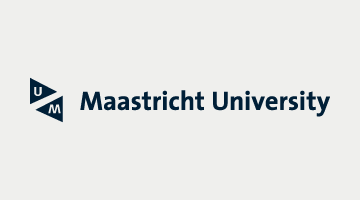Project 6
In Silico targeting of unstructured extracellular histones: En route to a new horizon of drug discovery to target disordered proteins
 Host institute: Maastricht University, the Netherlands (UMA)
Host institute: Maastricht University, the Netherlands (UMA)
Supervisors: Dr Gerry Nicolaes (UMA), Dr Kanin Wichapong (UMA)
Co-supervisor: Dr Peter Ekhart (BP)
Objectives
1. To apply specialistic state-of-the-art computational methods and develop novel computational approaches to identify peptides and small compounds to target unstructured N-terminal domains of histones. The identified inhibitors will be experimentally tested their potential to reduce histones-mediated cytotoxicity in WP1 by the Doctoral Candidate of project 2 (DC2);
2. To proof the concept the disordered proteins (e.g. histones) can be targeted small compounds;
3. To develop new diagnostic tools (imaging probes) for sepsis by targeting extracellular histones.
Expected Results
1. Novel potent and specific inhibitors (small compounds and peptides) targeting the histone isotype that play a role in mediating cytotoxicity.
2. Proof-of-concept the disordered proteins can be targeted small compounds and innovative technologies (computational and experimental approaches) that can be applied to screen and develop small compounds targeting other disordered proteins.
3. New imaging probes that can be utilized to diagnose the conditions of sepsis.
Project description
In this project, DC6 will utilize various computational methods such as molecular docking, structure-based design, molecular dynamics (MD) simulations, and binding free energy (BFE) calculations to develop novel inhibitors (e.g. small compounds and peptides) to neutralize the cytotoxicity of extracellular histones. Furthermore, DC6 will examine the inhibitory activity of the developed compounds in different experiments such as in vitro and cell-based assay, direct binding measurement (i.e. Biacore Surface plasmon resonance (SPR) and/or nano ITC). Suitable candidates should therefore have experience in both in silico and in vitro approaches and be able to fully exploit the synergy between these two approaches.
At the host lab, DC6 will work closely with DC7 who will apply similar approaches to develop novel bioactive compound targeting the PAD2/4 enzyme. Within the consortium, DC6 will work collaboratively with other DC’s who will investigate biological activity and therapeutic benefits of the developed compounds (small compounds, peptides and diagnostic tools) in different experiments from in vitro to animal models.
This project will enable DC6 to become proficient in both 'dry' and 'wet' labs and specialize in various computational and experimental techniques used in drug discovery campaigns.
Secondments
- UP (3 months)
- WWU (3 months)
- BasicPharma (1 month)
Requirements
Qualifications:
- The candidate should have a Master of Science degree (MSc) in the related research fields: biology, biochemistry, chemistry, biomedical sciences or pharmaceutical chemistry;
- The candidates who are in the final year of their master’s programs are eligible to apply for the position. However, they must provide proof of their expected MSc degree completion before the project begins in July 2024; limited extension of this date is possible only for candidates with proven exceptional skillsets.
- The candidate should be able to speak, write, and communicate fluently in English (at a B2/C1 level).
-
Candidates who have applied to this position earlier but received a rejection are requested not to apply again.
Experience:
- The applicants should have experience working in environmental research settings where they have actively participated in research projects, frequently presented results, and engaged in discussions during group meetings and seminars;
- The applicants who carried out internships in related research topics will be given preference;
- Suitable candidates should have experience and skills in “wet” lab experimentation and/or be willing to improve their in vitro skill set
-
Experience in protein chemistry, medicinal chemistry, compound optimization is a plus'.
Knowledge & skills:
- Having experience and skills in biological assay setup or biophysical methods to determine direct binding is a plus;
- Basic knowledge in Linux is desirable, and experience in artificial intelligence (AI), machine learning, molecular modelling software, docking method, and other related in structural bioinformatics approaches is considered an advantage;
- Experience with programming languages in PERL, python, C++ is a plus;
Abilities:
- The candidate must be able to start his/her PhD trajectory in July/August 2024;
- The candidate should have excellent communicative skills and be able to work independently as well as be a good team player in an international environment.
Attitude and disposition:
- The selected candidate should be open to learn and perform computational and experimental approaches needed to conduct the project;
- The candidate should have a creative, curious and critical attitude;
- Candidates with a clear inner drive to excel and academic mindset are encouraged to apply;
- The PRAETORIAN MSCA doctoral network requires abundant traveling and social settings. The applicant should be willing to present research orally and in writing, socialize and network at meetings within the consortium but also at major international conferences and at the home institution. The applicant is expected to voluntarily contribute to general public outreach and to the science community including engaging in scientific communities and PhD-communities at Maastricht University.
